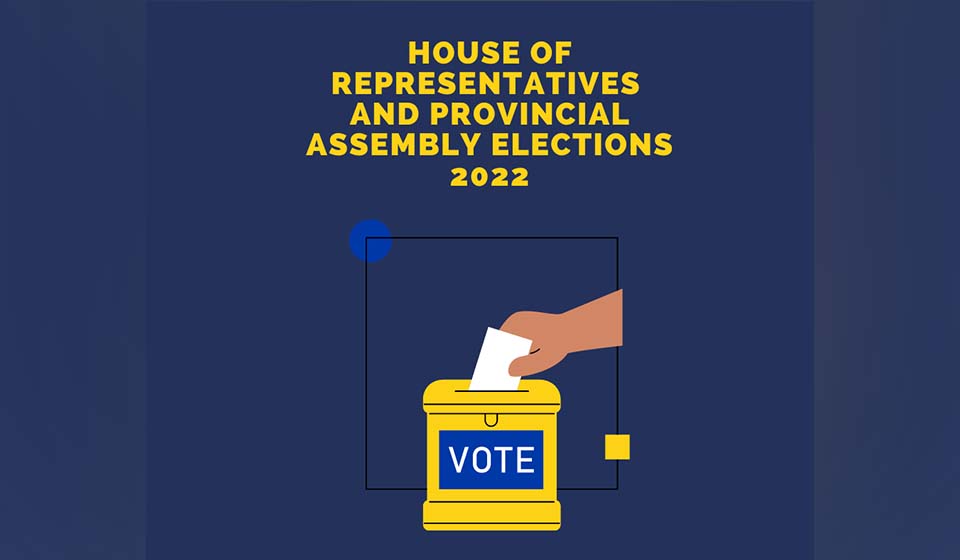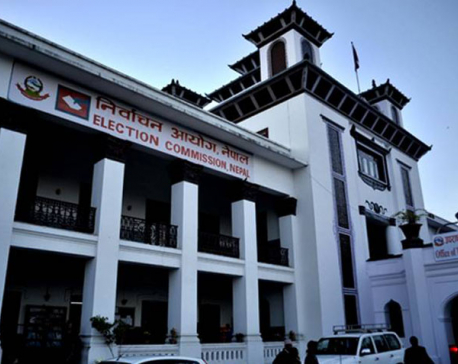
OR
Opinion

Uttam Paudel
The author is an independent researcher based in the United States.news@myrepublica.com
More from Author
A mood-based analysis of recent elections from abroad
The recent parliamentary elections heralded a stern rebuke of the political status quo as voters opted for younger and more independent candidates. However, the old game of parliamentary politics, with its remarkably resilient players, is back, making headlines. For now, the spirit of defiance has taken a backseat. This, at least, is what I gather from my sources. Now my sources might not pass rigorous scholarly standards, since they consist almost entirely of articles in various highbrow and lowbrow websites, their passionate comment sections, along with the opinions of friends and family. But they are excellent in capturing the mood of the country. You may understand this mood as the political climate, but that sounds too abstract and impersonal, considering how emotionally charged we Nepalis are about our political positions.
Although intangible, this mood carries tremendous tangible repercussions. It determines individual political behaviors, shapes public opinion, and, as the election showed, delivers strong political messages. Moreover, it gives a powerful impression of the current political trends to the millions of Nepali citizens like me who are now abroad. For most of us, regularly monitoring the mood of the country is the most we can do in terms of political participation. While this may sound dispiritingly low-rent, even the fulfillment of this perfunctory obligation is quite uncommon, especially for my generation – an ever-growing number of young people who have left and continue to leave Nepal in pursuit of “educational” opportunities. In fact, for practical, personal, and philosophical reasons, this study abroad generation is not really interested in Nepali politics.
To begin with, studying abroad has now become the default goal of most of our private school-educated youth. We also know from experience that, barring exceptions, those who study abroad eventually end up settling abroad. Thus, from a practical perspective, it makes little sense to pay close attention to the vagaries of Nepali politics if your ostensible aim is to end up somewhere that is not Nepal. Once abroad, it becomes even more impractical to devote significant time and effort into Nepali politics because both the scope and the direct benefits of political participation shrink. Likewise, on a personal level, whether you are still in Nepal or outside Nepal, political engagement is ultimately futile if all your hopes and dreams hinge on leaving Nepal for the developed world.
The philosophical reasons behind my generation’s disengagement with politics are more complicated. When eighteen-year-old high school graduates leave for Australia because they do not “see any future” in Nepal, they do not do so after carefully reviewing Nepal’s economic trajectory for the next few decades. Rarely, if ever, do they deliberate on the profound political, social, and cultural consequences of their actions. In fact, these damning indictments about Nepal’s futures are inspired, above all, by the mood of the country. Mood is a nebulous yet decisive motivator. Rampant corruption, sluggish economic progress, chronic mismanagement at every level of government, and alarming levels of brain drain all contribute to the souring of the national mood, ultimately resulting in the decisions to leave Nepal for good. Bluntly put, an entire generation has now fled the country because the vibes are bad.
My generation’s quiet exodus may be unpatriotic and unheroic, but it is nevertheless unsurprising. We were never taught, nor did we ever learn, to take a genuine sense of national pride, one that is born out of shared accomplishments. For us, heroism was to regale on the tales of the Gurkhas and patriotic duty was to proclaim Nepal as the land of Buddha and Mt Everest. Like every generation, we were shaped by what we learned. We learned how to stand out in an interconnected world, to market ourselves globally, and to use every opportunity to advance ourselves. But we also learned indifference from our schools, hopelessness from our politics, consumerism from the media, and narcissism from social media. All this cultivated in us a malaise, the cure for which was to be found abroad. We could have learned to assert ourselves in national discourses, to serve our communities, and to unite against all-pervasive corruption. But our minds were made, our hopes and dreams already pinned abroad. We thus became the absent generation, for we made absence from Nepal our chief ambition.
Still, with the recent election, the country’s mood has taken a decidedly optimistic turn. It has shown, for instance, that the political vanguard is not invincible. Newer faces, newer voices, and newer ideas will now have opportunities to participate in governance. Their greatest test will be to resist being co-opted by the political elite, the authors of our many woes. Their integrity will be further tested by the corruption and incompetence that have seeped into the very foundations of our public institutions. However, they will have done their part in lifting the national mood if, at the very least, they use this momentum to bring demonstrable improvements in people’s livelihoods. They must also be mindful that their failures will have devastating reverberations. Should they fail, we – with our unfailing fatalism – will convince ourselves that this land is cursed beyond redemption by Sati.
Will such optimism translate into fewer young people leaving the country? Probably not. The temptations of “making it” in the US, Australia or elsewhere are too strong and the opportunities within Nepal pale in comparison. Nonetheless, this election has shown that there is a limit to people’s tolerance of political debauchery and injected a much-needed dose of optimism into the political process. If all goes well, the argument that there is no future in Nepal could be weakened to the extent that it would cease being the standard excuse for those leaving the country. At the very least, it would force a reckoning, perhaps even for those outside Nepal. We may even see my generation, the absent generation, appreciating its civic duties and seriously exploring opportunities within Nepal. I do not know when and how we will get there, but we will have headed toward the right direction once we start seeing more articles like this, hypocritical though they may be.
You May Like This

EC allocates election symbols to political parties for NA election
KATHMANDU, Jan 19: The Election Commission has allocated election symbols to the 21 political parties that have registered for the... Read More...

NATTA holding election for new executive election on Friday
KATHMANDU, Jan 9: Nepal Association of Tour and Travel Agents (NATTA) is holding its 51st Annual General Meeting (AGM) and... Read More...

Election Commission prohibits vehicular movement on election day
KATHMANDU, May 13: Vehicular movement will be prohibited on Sunday for the first phase of local level elections. The Election Commission... Read More...




Just In
- MoHP cautions docs working in govt hospitals not to work in private ones
- Over 400,000 tourists visited Mustang by road last year
- 19 hydropower projects to be showcased at investment summit
- Global oil and gold prices surge as Israel retaliates against Iran
- Sajha Yatayat cancels CEO appointment process for lack of candidates
- Govt padlocks Nepal Scouts’ property illegally occupied by NC lawmaker Deepak Khadka
- FWEAN meets with President Paudel to solicit support for women entrepreneurship
- Koshi provincial assembly passes resolution motion calling for special session by majority votes







_20220508065243.jpg)





Leave A Comment